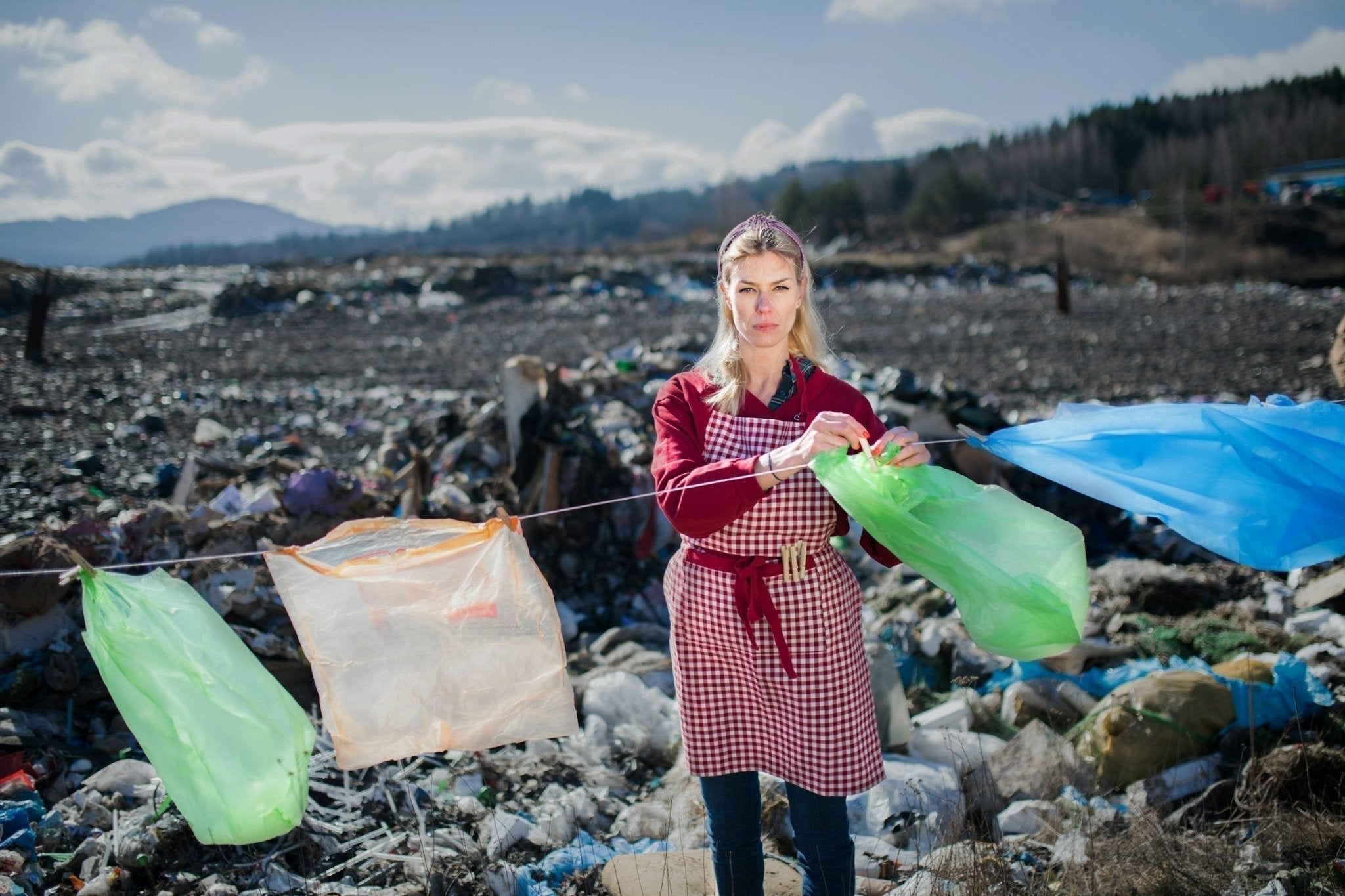5 Reasons to Break Up With Plastic
We live in a world wrapped in plastic—our food, clothing, skincare, and even wellness tools often come packaged in it. Behind the convenience, though, lies a deeper cost: one that affects not only the planet but our own well-being. At Echo, we believe wellness isn’t just about what we use—it’s about the materials those products are made from, how they’re sourced, and where they end up.
That said, we understand that plastic is nearly impossible to avoid entirely. Even some of the most thoughtfully made products in our shop include plastic pumps, lids, or components due to hygiene standards, cost, or supply chain realities. This article isn’t about guilt or perfection—it’s about awareness. When we understand how plastic impacts our bodies and the Earth, we’re better equipped to make small, meaningful shifts: choosing natural materials when we can, supporting brands doing better, and leading with intention.
Here are five powerful reasons to start rethinking your relationship with plastic—and a few easy swaps to help you get started.
1. Plastics Can Disrupt Hormones
We often associate plastic with convenience, but few realize it comes with a hidden health toll. Many plastics contain endocrine-disrupting chemicals (EDCs) like BPA, phthalates, and PFAS, which interfere with our body’s hormone function. These chemicals have been linked to fertility issues, developmental delays, metabolic disorders, thyroid dysfunction, and increased risk of certain cancers.
Even “BPA-free” plastics aren’t always safe. Manufacturers often replace BPA with similar compounds (like BPS or BPF) that may have equal or greater toxicity. What’s more, plastics become more unstable when heated—think takeout containers, plastic water bottles in the sun, or microwaving food in plastic.
And it’s not just food containers. Clothing made from plastic-based fibers can leach harmful chemicals onto your skin—especially during heat and sweat—where they’re more easily absorbed. Even “moisture-wicking” fabrics often come at a cost to your endocrine health.
Natural Swaps:
- Glass jars for food storage and leftovers
- Bamboo utensils and cutting boards
- Stainless steel or ceramic water bottles and lunch containers
- Silicone (platinum-grade) as a safer alternative for freezer or oven storage
- Breathable, natural-fiber clothing like organic cotton, linen, and hemp
2. Plastic Pollutes Our Bodies
We now know that microplastics—tiny particles of degraded plastic—are found in nearly every corner of our ecosystem, including human lungs, blood, breast milk, and placentas. These particles can enter the body through air, water, food, and even dust. Although we’re still uncovering the full impact, early research suggests that microplastics may cause inflammation, gut microbiome imbalance, and oxidative stress.
What’s more concerning? These tiny invaders are not inert. They often carry endocrine disruptors, heavy metals, and other toxins, delivering a concentrated chemical punch to our internal systems.
Natural Swaps:
- Beeswax wraps or silicone alternatives instead of plastic cling wrap
- Natural fiber dish cloths and reusable produce bags
- Avoiding plastic-coated tea bags and food containers
- Swap fast fashion for slow, plastic-free fashion made with GOTS-certified organic textiles
- Use a microplastic-catching laundry bag if washing synthetics
3. Plastic Is Choking the Planet
Plastic pollution is one of the most urgent ecological crises of our time. Since plastic doesn’t biodegrade, it persists in the environment for hundreds of years, breaking into smaller pieces but never truly disappearing. Over 8 million tons of plastic waste enters the ocean each year, harming marine life and disrupting entire ecosystems.
Landfills are overburdened with plastic, and even recycling isn’t the solution we once thought. Only about 9% of all plastic ever made has been recycled. And that’s a generous estimate. The rest is either incinerated (releasing toxic gases) or sits in landfills, leaching chemicals into the soil and groundwater.
Fashion plays a bigger role than most realize. The fashion industry is responsible for 35% of all microplastic pollution in the ocean, largely from synthetic fabrics. Each wash cycle becomes an invisible contributor to global pollution—without us even knowing.
Natural Swaps:
- Buy clothing made from regenerative or recycled natural fibers
- Opt for unpackaged produce or shop at refill stores
- Choose items made from ceramic, wood, or recycled glass
- Avoid “fast plastic” items like party cutlery, takeout containers, and balloons
- Shop secondhand or from conscious brands (like the ones we carry at Echo!) committed to low-impact production
4. It’s Easier Than Ever to Go Plastic-Free
We’re living in a time where low-waste living is no longer niche—it’s a movement. You can now find thoughtful, elegant alternatives to nearly every plastic product in your home. Whether you’re swapping shampoo bottles for bars, using refillable cleaning products, or choosing skincare in glass packaging, every decision builds a more conscious home.
Plastic-free doesn’t mean you need to change everything overnight. It means starting with one small swap—like a cotton tee instead of polyester, or a bamboo toothbrush instead of plastic—and letting it build from there. Small steps lead to big change when done consistently and with intention.
Echo Favorites:
- Organic cotton basics from brands that prioritize people and planet
- Refillable cleaning concentrates in glass bottles
- Bamboo toothbrushes and razors
- Glass skincare jars from brands that align with your values
- Low-waste refills for pantry staples and bulk herbs
5. Your Habits Influence the World Around You
It’s easy to feel like one person can’t make a difference. But every dollar you spend is a vote for the kind of world you want to live in. When you choose plastic-free or low-waste alternatives, you're not just reducing your personal exposure—you’re shifting demand, influencing brands, and creating ripple effects within your family, community, and beyond.
This isn’t about being perfect. It’s about being mindful, motivated, and willing to do better when better is possible. Your choices matter.
Ways to Lead by Example:
- Keep a reusable “to-go” kit with a tote bag, utensils, and water bottle
- Gift plastic-free products to loved ones
- Support local markets and shops with a commitment to sustainability
- Share your swaps on social to inspire others
Less Plastic, More Possibility
Wellness isn’t just about what we put in our bodies—it’s about what surrounds us, what we touch, and what we bring into our homes. Choosing natural materials like bamboo, stainless steel, and glass is an act of healing, for ourselves and the planet. You don’t have to do it all. You just have to begin.
Every plastic-free choice is a seed planted for a cleaner, healthier world. And that’s something worth celebrating.




Yes, it is such a challenge to completely avoid plastics in our ‘modern’ world. I appreciate you reminding us of awareness, not perfection. We do what we can and every choice to take the extra second to choose consciously, is a win. Informative and motivating article, thank you!
Outstanding article! Thank you very much!
Outstanding article! Thank you very much!
Leave a comment